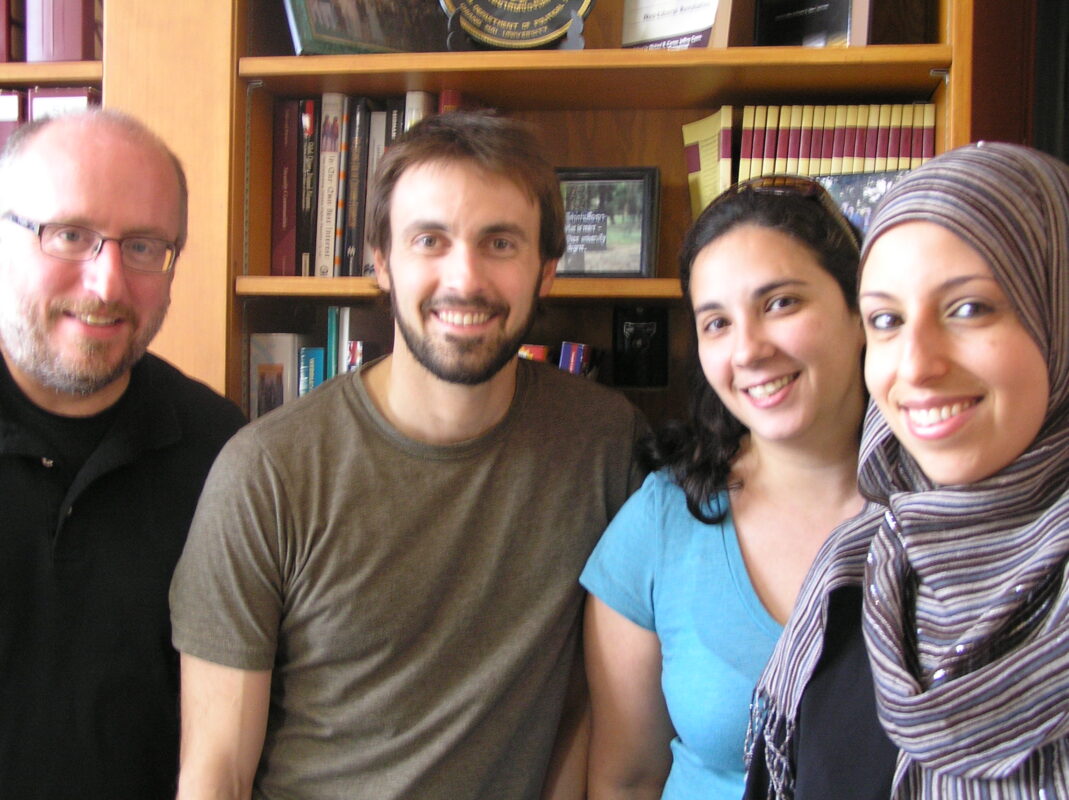“Beloved, believe not every spirit (prophet), but try the spirits whether they are of God: because many false prophets are gone out into the world. Hereby know ye the Spirit of God: Every spirit that confesseth that Jesus Christ is come in the flesh is of God: And every spirit that confesseth not that Jesus Christ is come in the flesh is not of God: and this is that [spirit] of antichrist, whereof ye have heard that it should come; and even now already is it in the world.”
1 John 4:1-3
“And the angles said ‘O Mary, Allah gives you glad tidings of a Word from Him, his name is Messiah, Jesus son of Mary, High honored in this world and the next, of those near stationed to Allah.”
So now we must ask: Has Muhammad (pbuh) fulfilled this criteria or not? This is all the more remarkable when it is contrasted with the popular opinion of the time such as the claims of the Jews regarding Jesus (pbuh) and his mother Mary (pbuh) as seen in part nine of section 6.3. As a matter of fact, Jesus is referred to by name in the Qur’an fully sixteen times, as compared to only four places in the whole Qur’an where Muhammad (pbuh) is mentioned by name.
No other religion in the whole world outside Christianity makes it an article of faith for its adherents to believe in, love and honor Jesus except Islam. Reading the Qur’an bears testimony to that (see for example (19):16-36, A’al-Umran(3):33-68, Al-Nissa(5): 72-77). Here we have the testimony of Jesus himself in the Bible that Muhammad was a prophet of God. If Jesus’ words carry any weight at all with us then we must concede that Muhammad was a prophet of God and therefore spoke in the name of God.
Further, Jesus gives a second criteria to judge the truthfulness of a prophet. He says:
“Beware of false prophets, which come to you in sheep’s clothing, but inwardly they are ravening wolves. Ye shall know them by their fruits. Do men gather grapes of thorns, or figs of thistles? Even so every good tree bringeth forth good fruit; but a corrupt tree bringeth forth evil fruit. A good tree cannot bring forth evil fruit, neither [can] a corrupt tree bring forth good fruit. Every tree that bringeth not forth good fruit is hewn down, and cast into the fire. Wherefore by their fruits ye shall know them.”
Matthew 7:15-20
So, according to the testimony of Jesus, if we wish to know whether prophet Muhammad (pbuh) was a true prophet or not we need to see what sort of “fruit” his message produced. A moderately detailed description of these fruits can be found in chapters 9 and 10, however, let us listen to the words of the Hindu Professor K. S. Ramakrishna Rao. He says:
“Historical records show that all contemporaries of Muhammad, both friend and foes, acknowledged the sterling qualities, the spotless honesty, the noble virtues, the absolute sincerity, and the absolute trustworthiness of the apostle of Islam in all walks of life and in every sphere of human activity. Even the Jews and those who did not believe in his message accepted him as arbitrator in their personal disputes on account of his scrupulous impartiality”
Muhammad the Prophet of Islam, K. S. Ramakrishna Rao, p. 13
(Please read chapter nine for more on the fruit of the message of Muhammad, pbuh)








